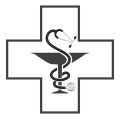Gastroenteritis
Gastroenteritis is an infection in the digestive system causing inflammation of the stomach lining and the lining of the intestines. Gastroenteritis is an unpleasant illness, although usually self resolves after a few days in most adults. Certain people however are at a high risk of gebng severely dehydrated.
Causes
Gastroenteritis is most commonly caused by a virus, although may also be caused from bacteria or parasite. These organisms enter the digestive system through the mouth, usually by contaminated food or water, or by being spread from a person with the illness.
Signs and Symptoms
Gastroenteritis causes diarrhea, nausea and vomiting, and abdominal cramps. The abdomen is usually tender to touch. There may sometimes be fever also. Usually symptoms resolve after 48-72 hours.
Investigations
Usually no investigations are required. The diagnosis is made from taking a thorough history and physical examination.
Severe cases will require routine bloods to be taken. A stool sample can be sent to the laboratory for analysis, if appropriate and feasible.
Treatment
Treatment depends on the cause. Viral gastroenteritis is treated by fluid and electrolyte replacement. Bacterial gastroenteritis also requires antibiotics.
Mild cases of gastroenteritis can be treated at home, without the need to present to hospital. The person should drink adequate amounts of water, to replace that which is lost. Electrolytes lost should be replaced; this can be done with adding salt and sugar to water, purchasing sports drinks, or with oral rehydration solutions. Medications for nausea and vomiting can also be taken. Anti-diarrheal medications are usually not required.
Severe cases will need to be treated in hospital with intravenous fluids. People at most risk are the very young and the elderly, as well as people with certain pre- existing medical conditions. These people can become dehydrated very quickly, which can lead to multi-organ failure.
Most cases of gastroenteritis are highly infectious (easily transmitted from one person to another), from organisms in the patients feces entering into your mouth. Organisms may be transferred from the patient when touching their hands, or sharing objects and surfaces. Therefore gloves and other protective measures need to be taken by those attending to the patient, and thorough hand washing is essential.


